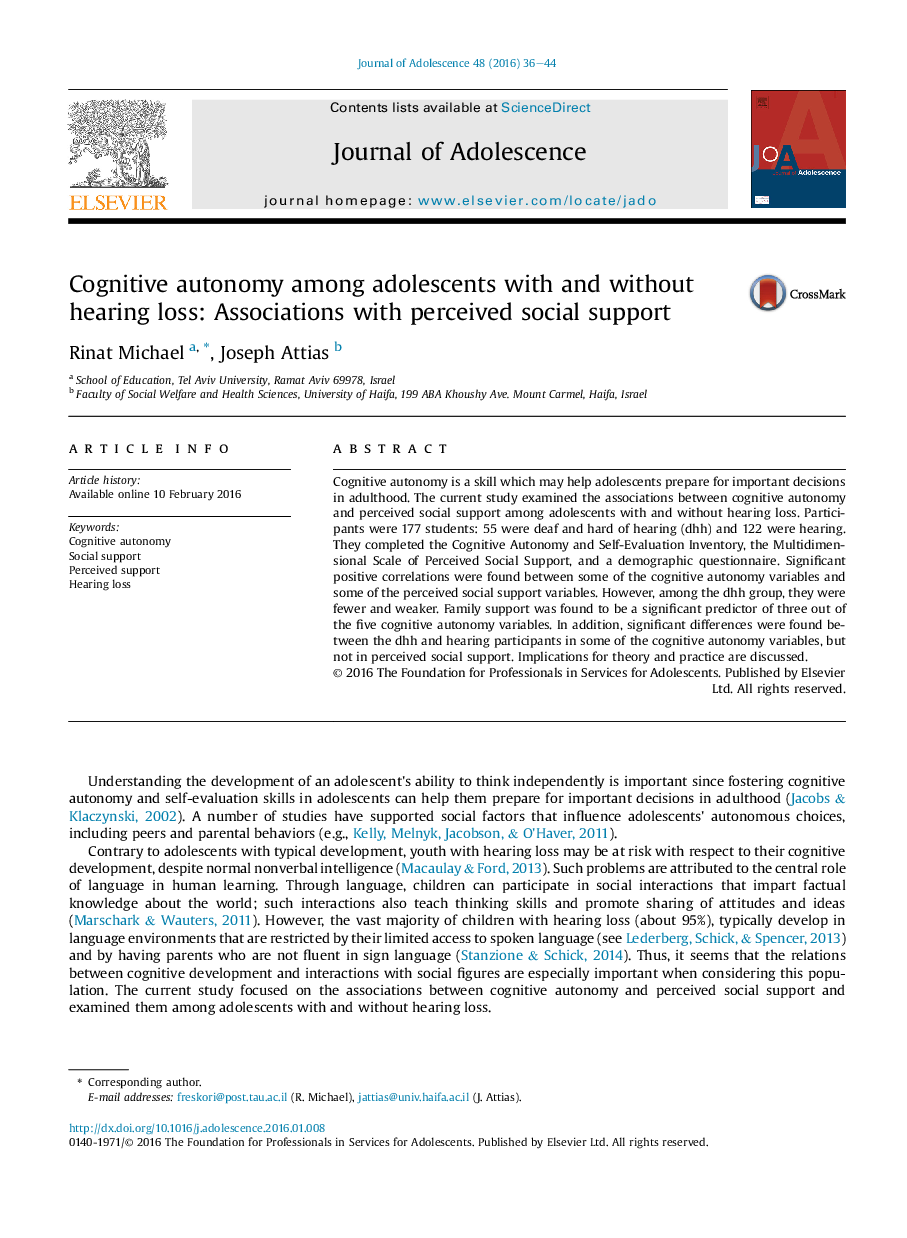| Article ID | Journal | Published Year | Pages | File Type |
|---|---|---|---|---|
| 880593 | Journal of Adolescence | 2016 | 9 Pages |
Cognitive autonomy is a skill which may help adolescents prepare for important decisions in adulthood. The current study examined the associations between cognitive autonomy and perceived social support among adolescents with and without hearing loss. Participants were 177 students: 55 were deaf and hard of hearing (dhh) and 122 were hearing. They completed the Cognitive Autonomy and Self-Evaluation Inventory, the Multidimensional Scale of Perceived Social Support, and a demographic questionnaire. Significant positive correlations were found between some of the cognitive autonomy variables and some of the perceived social support variables. However, among the dhh group, they were fewer and weaker. Family support was found to be a significant predictor of three out of the five cognitive autonomy variables. In addition, significant differences were found between the dhh and hearing participants in some of the cognitive autonomy variables, but not in perceived social support. Implications for theory and practice are discussed.
